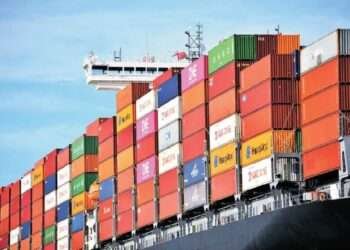The role of national development banks in Africa’s growth discourse cannot be overestimated. Fitch Ratings, a credit rating agency indicates that financial sustainability remains a challenge for African National Developments, emerging from the pandemic.
African governments and policymakers are stretching National Development Banks to greatly contribute to greater policy role. The main objective is to accelerate their role by financing the UN’s 2030 Agenda for Sustainable Development goals (SDGs).
According to Fitch Ratings, ability to support sovereigns is a key rating indicator for African National Development Banks. However, achieving financial sustainability is critical to playing a significant role, Fitch Ratings notes.
Furthermore, African National Development Banks take the form of state-owned policy-oriented banks with the focus of pursuing socio-economic objectives. Major policies run by these banks include industrialization, export promotion, job creation and financial market development.
Moreover, Fitch notes that African National Development Banks have remained identified with not too good standing in terms of management and operations for a long time now.
“In Africa, these banks have long suffered from ineffective business models, weak asset quality, poor corporate governance and negative perceptions from market participants.”
Nonetheless, these banks have received sovereign support over the years as a result of changes to political climates, as governments return to state-led development policies. Essentially, such policies mostly aligned with the implementation of the SDG’s agenda.
State of African National Development Banks
Recent evidence shows that several African National Development Banks were created or revived by governments, which saw these banks’ potential as extra sources of funding for the government’s development goals.
In furtherance of this, Fitch has examined the financial profiles of ten National Development Banks; South Africa, Morocco, Nigeria, Namibia, Botswana, Rwanda and Uganda against their potential to achieve financial sustainability and to deliver on policy objectives.
Based on Fitch’s assessment, leading African National Development Banks can play critical roles towards financing the SDGs. Especially, banks’ ability to mobilise concessional funding from large private-sector investments, local and foreign as well as other development lenders.
Thus, the nature of circumstances surrounding these banks means that they will have to secure a lot more funding from non-sovereign sources to pursue rapid growth. This has the tendency of putting them under severe rating strains.
Per the aforementioned, it leaves no doubt that financial sustainability is the way to go. This will require that National Development Banks improve generating capital internally.
Furthermore, these banks will have to focus on diversifying their funds among cost-effective development agenda.
Thus, for these banks to achieve the transformational goals for which they were established, these actions must be implemented.
These notwithstanding, for four of the African National Development Banks; Nigeria, Namibia, Uganda, Rwanda, Fitch rates them with outlook aligned with their sovereign ratings. They include; Bank of Industry (Nigeria, B/ Stable), Development Bank of Namibia (BB/ Negative), Uganda Development Bank (B+/ Negative) and Development Bank of Rwanda (B+/ Stable).
The government of Ghana, recently, indicated its interest to build a National Development Bank. While a good initiative, the government should pick a cue from the analysis by the Ratings Agency. In order to build a formidable bank than those of the sovereigns, herein highlighted.























